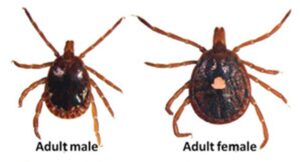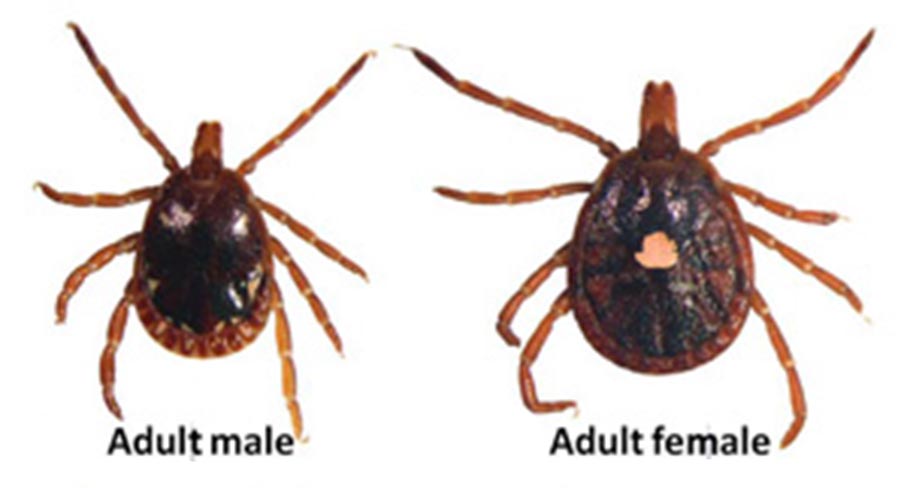
A bite from a Lone Star tick may cause meat allergy.
Alpha-gal allergy, also known as meat allergy or mammalian meat allergy (MMA), is an immune reaction to galactose-alpha-1,3-galactose (alpha-gal). Although still controversial, it has been proposed that Lone star ticks (a.k.a Amblyomma americanum) have been linked to meat allergy. The alpha-gal sugar from the tick can be transmitted to the patient through a tick bite causing sensitization and ultimately allergic reactions to red meat.
The Lone star tick is expanding from the Southeastern US moving northward (ME) and westward (approaching CO). A recent report from the Public Health Ontario Laboratory has found a significant occurrence of adult and nymphal Lone Star ticks in the Eastern and South West regions of the province. The expansion of this species has been attributed in part to climate change.
The Lone star tick can transmit several known human diseases such as Tularemia, Ehrlichia, STARI, Rocky Mountain spotted fever, Heartland Virus (HRTV) and Bourbon Virus (BRBV). Of note, spirochete bacteria including Borrelia lonestari and possibly Borrelia strains related to Lyme disease, have also been detected in Lone Star ticks.
The Lone Star tick is an aggressive tick and rather non-specific when seeking its blood meals. Depending on its maturity, it will seek many different types of hosts including a wide range of large mammals (e.g. humans, cattle and horses), cats, coyotes, dogs, foxes, opossums, rabbits, raccoons, rodents, squirrels and birds. This tick species can be difficult to identify. Not all Lone star ticks have a white dot (only adult females). It’s important to identify ticks after a tick bite and be aware of potential symptoms.
Alpha-gal syndrome signs and symptoms (according to the Mayo Clinic):
- Hives, itching, or itchy, scaly skin (eczema)
- Swelling of the lips, face, tongue and throat, or other body parts
- Wheezing or shortness of breath
- A runny nose
- Abdominal pain, diarrhea, nausea or vomiting
- Sneezing
- Headaches
- Anaphylaxis, a severe, potentially deadly allergic reaction that restricts breathing

